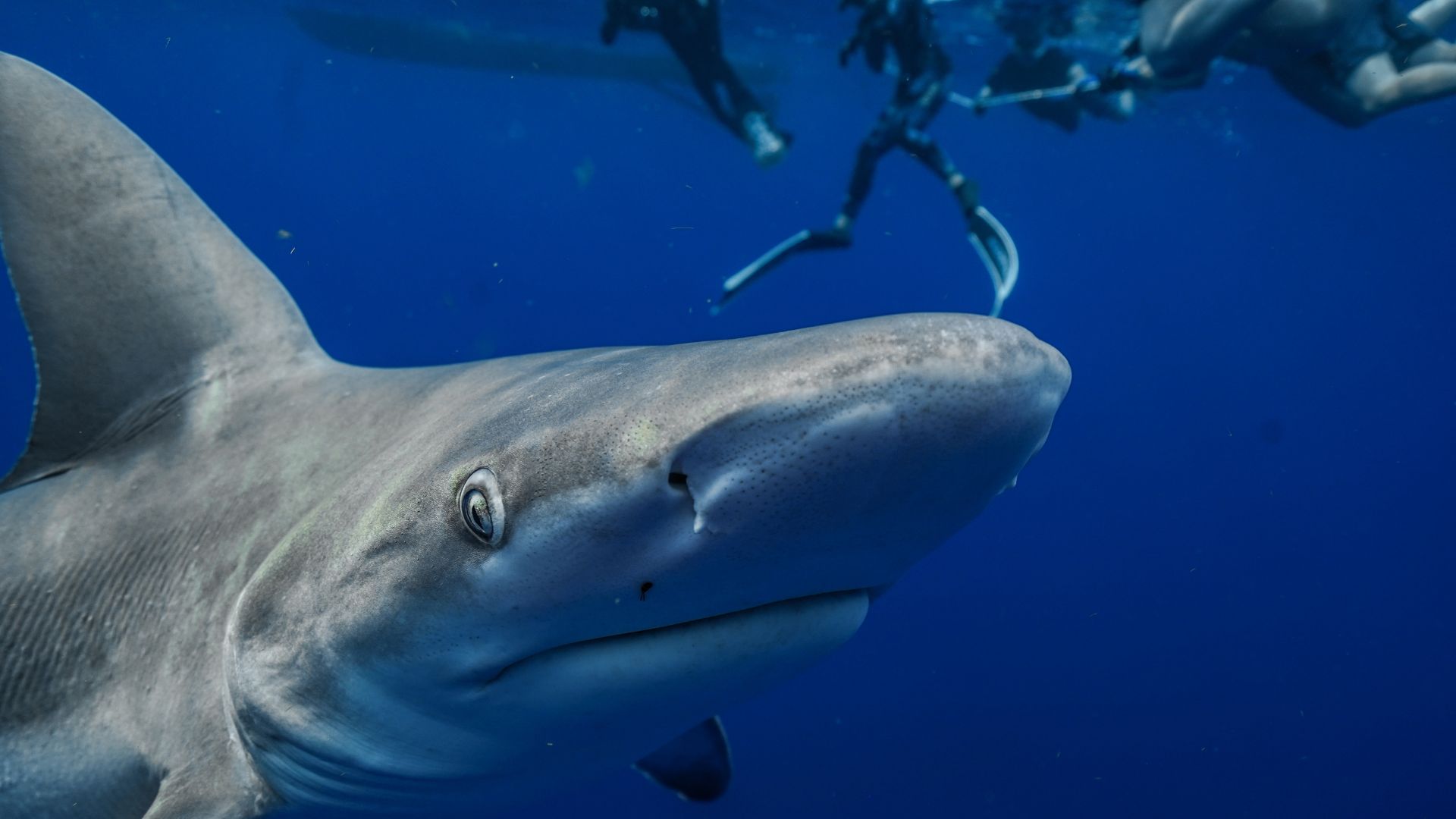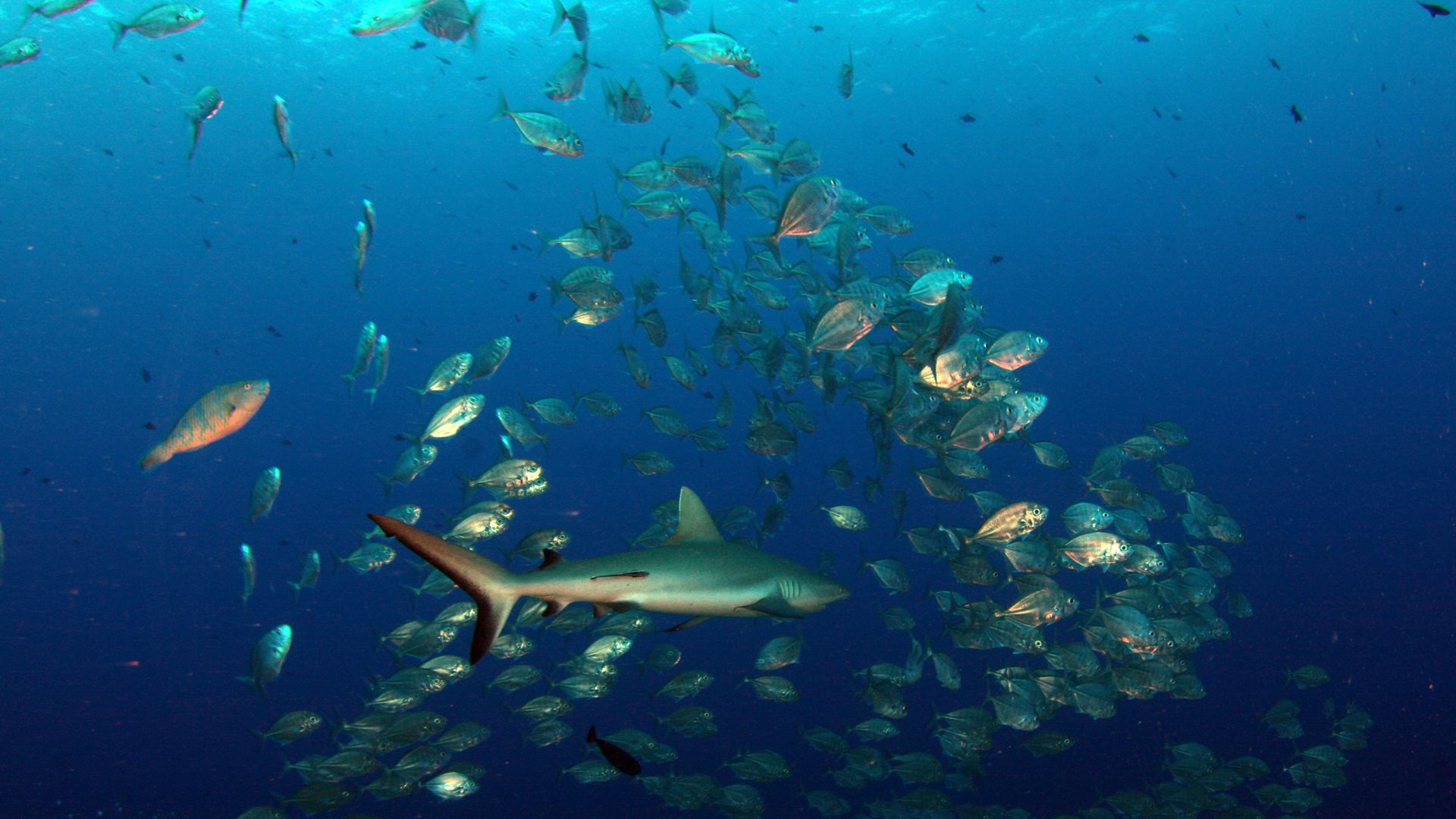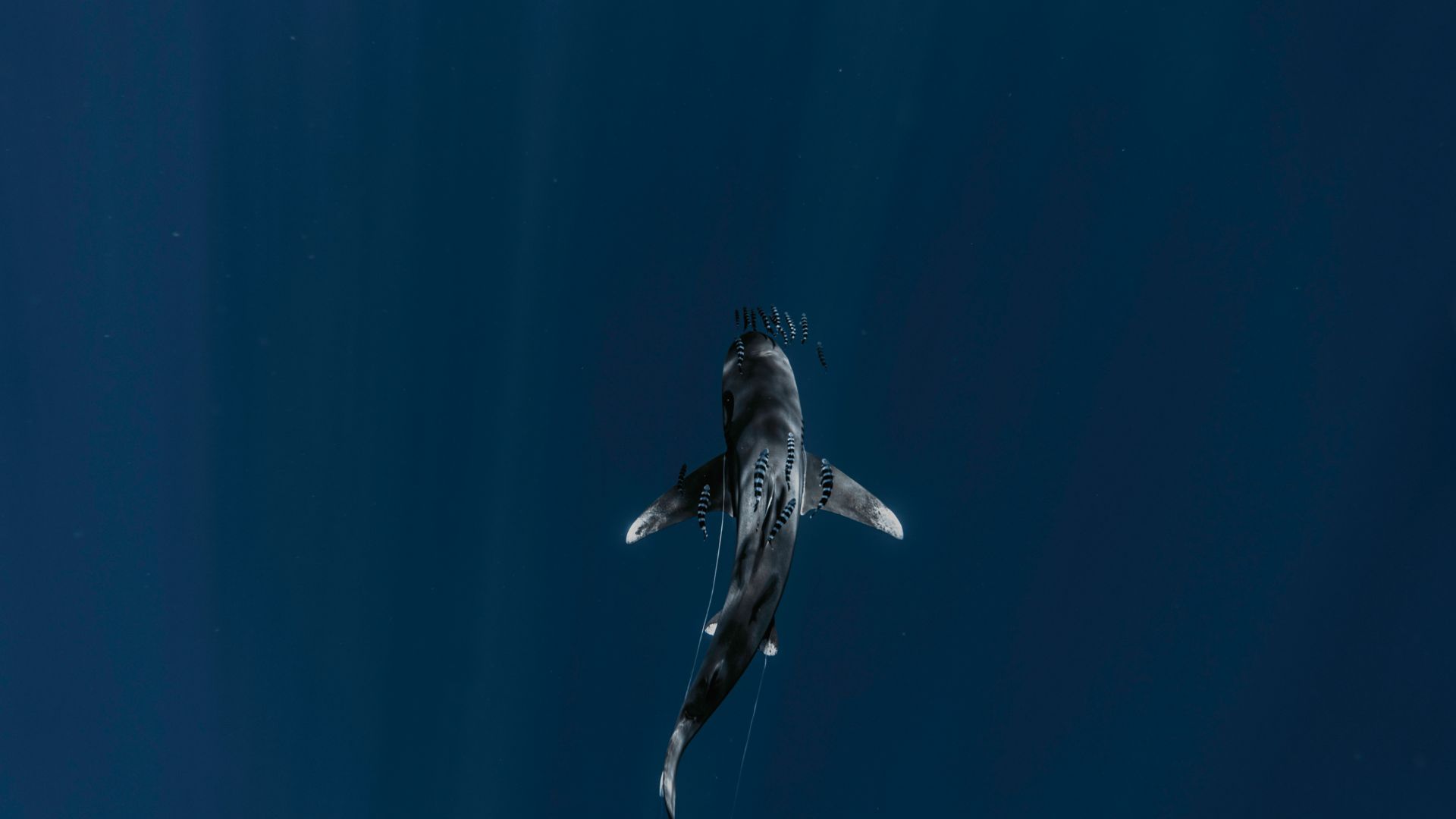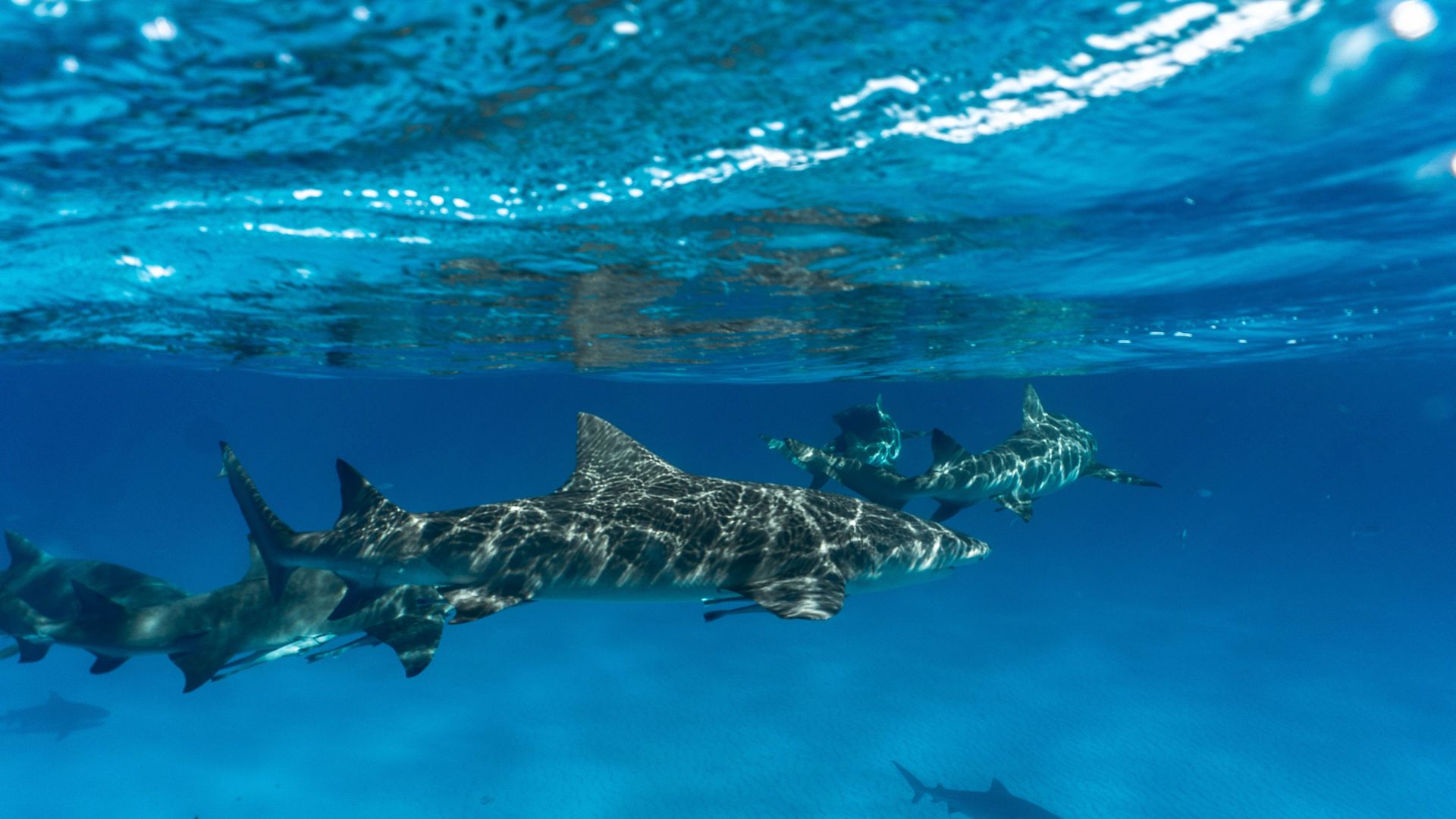
How sharks contribute to the health of our oceans
Sharks have long been feared as ruthless predators, but their role in maintaining the health of our oceans is far more vital than most people realise. As apex predators, sharks sit at the top of the food chain, helping to regulate the populations of other marine species. This natural balance is essential for maintaining biodiversity and the overall health of marine ecosystems.
“Sharks are the guardians of our oceans, and protecting them is key to preserving the delicate balance of marine ecosystems that countless species, including ourselves, rely on.”
In this article, we’ll explore how sharks contribute to the health of our oceans, focusing on their impact on the food chain, coral reefs, and the balance of marine species:
- Sharks control the food chain
- Sharks and coral reef health
- Sharks and the balance of marine species
- More than predators: Sharks ensure healthy ecosystems
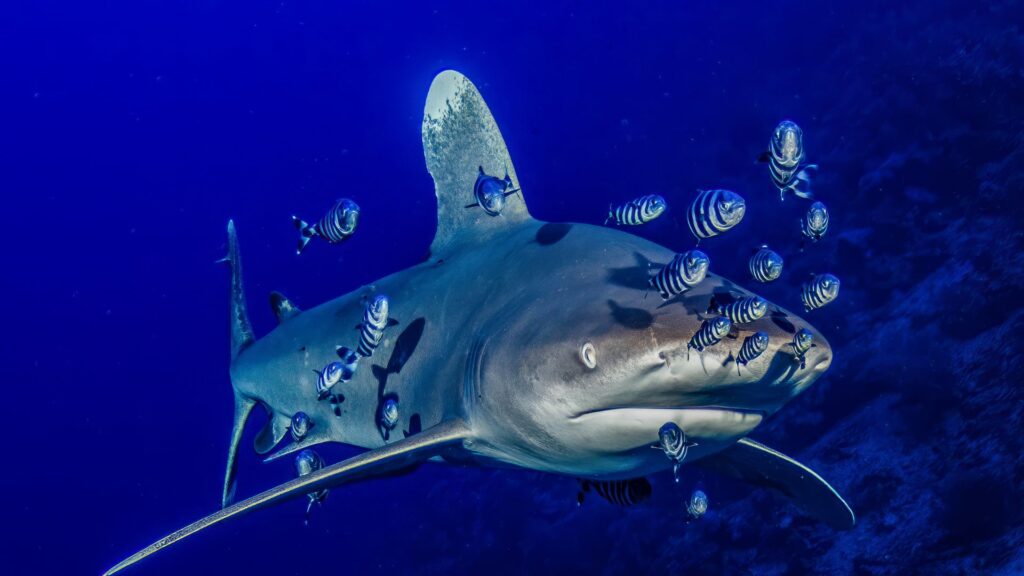
By understanding the crucial role sharks play, we can appreciate their importance and work to protect them for the future of our oceans.
Sharks control the food chain
As apex predators, sharks have a critical role in regulating the food chain in the ocean. By preying on weaker, slower, or sick individuals in other species, sharks help maintain a healthy balance within marine populations. This behaviour is known as “natural culling,” where sharks remove individuals that could otherwise harm the overall health of the population, such as those that carry disease or genetic defects. This process ensures that only the healthiest members of a species survive and reproduce, contributing to the resilience of the species as a whole.
One of the primary ways sharks control the food chain is by regulating populations of smaller fish. For example, in areas where sharks have been removed or their populations have declined, there has been a noticeable increase in the number of smaller fish, such as rays and smaller fish species. These overabundant populations can lead to overgrazing of vital marine resources like sea grass beds, algae, and coral reefs. Without sharks, smaller fish species can overconsume these resources, leading to habitat degradation and loss of biodiversity. The presence of sharks, therefore, helps to keep these smaller populations in check, preventing overgrazing and ensuring that the ecosystem remains healthy and sustainable.
Sharks and coral reef health
Sharks also play a crucial role in maintaining the health of coral reefs. Coral reefs are incredibly diverse ecosystems that support thousands of species, but they are highly vulnerable to environmental pressures. Sharks help preserve these fragile ecosystems by regulating the populations of herbivorous fish, such as parrotfish and surgeonfish, which feed on algae that can otherwise overtake and smother coral.
When shark populations are reduced, the number of herbivorous fish can increase, leading to overgrazing of algae. Algae can quickly become overabundant, depriving coral reefs of the space and nutrients they need to survive. In some cases, coral reefs have been found to suffer from excessive algal growth after the removal of sharks from the ecosystem. By maintaining the balance of herbivorous fish populations, sharks help to prevent this overgrowth and allow coral reefs to thrive.
The relationship between sharks and coral reefs highlights how closely linked various marine species are, and how the removal of one species, even an apex predator like a shark, can have far-reaching consequences for the entire ecosystem. Shark conservation, therefore, is not just about protecting the sharks themselves, but also about preserving the habitats that many other marine species rely on, including the crucial coral reefs.
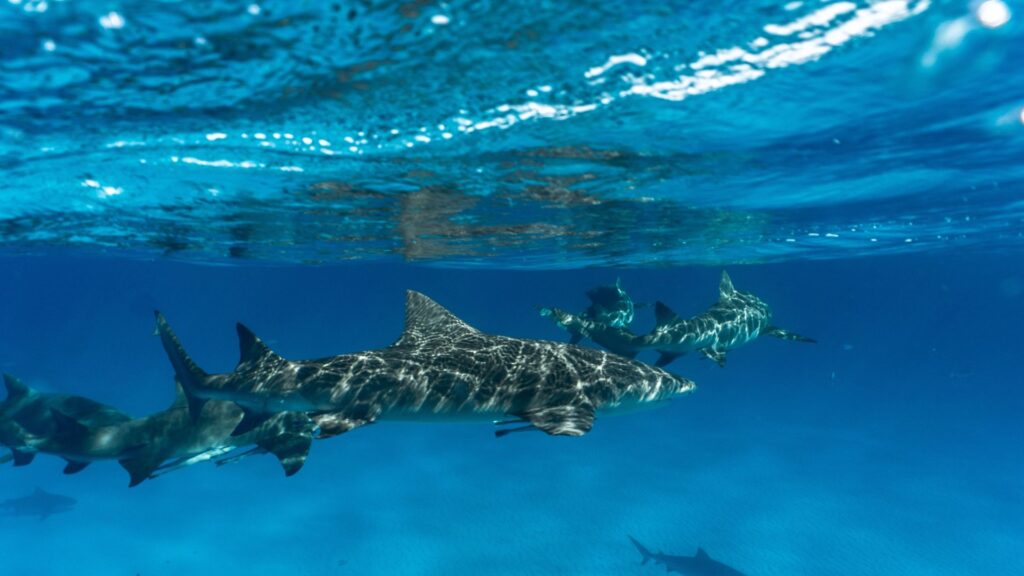
Sharks and the balance of marine species
Sharks are not only important in regulating the populations of smaller fish, but they also play a key role in controlling the populations of other marine predators. By preying on mid-level predators, such as smaller sharks, squid, and fish, sharks help to keep these species from becoming too dominant in the ecosystem. This ensures that the food chain remains balanced and that no one species overpowers others.
One case study that illustrates the ripple effect of shark removal comes from the waters off the coast of the United States. In areas where sharks have been overfished or their populations reduced, researchers have found an increase in the number of smaller predators, such as rays and smaller fish. These predators, once kept in check by sharks, are now free to proliferate, and their unchecked growth has caused a decline in the populations of smaller fish species that are vital to the health of the ecosystem. This has led to the degradation of coral reefs, as the smaller fish populations, which would normally graze on algae and detritus, are no longer present in the numbers needed to maintain the balance.
Similarly, in the waters around the Bahamas, the removal of sharks from the ecosystem has led to an explosion in the population of rays. This increase in ray numbers has caused overgrazing of important sea grass beds, which are vital habitats for many marine species. This example clearly shows how the removal of sharks can disrupt entire ecosystems, affecting not only the species directly involved but also the broader environment.
More than predators: Sharks ensure healthy ecosystems
Sharks are far more than just predators—they are the backbone of healthy, functioning marine ecosystems. As apex predators, sharks play a crucial role in regulating food chains, maintaining the balance of marine species, and preserving delicate habitats like coral reefs. Their presence helps to ensure that populations remain in check, preventing overgrazing and maintaining biodiversity in the ocean.
The decline in shark populations due to overfishing, habitat destruction, and the shark fin trade is a serious threat to the health of our oceans. As apex predators, sharks are integral to the overall functioning of marine ecosystems, and without them, the delicate balance of life in the ocean could collapse. Shark conservation is not just about protecting sharks themselves—it is about safeguarding the entire ocean ecosystem and ensuring the future health of the oceans for generations to come.
Let’s recap:
- Sharks are essential for regulating marine ecosystems by controlling the populations of smaller fish and other predators, preventing overgrazing and maintaining biodiversity.
- Sharks help preserve coral reefs by controlling herbivorous fish populations that can overgraze algae, which, if left unchecked, can smother and damage coral reefs.
- The removal of sharks disrupts marine ecosystems, leading to an increase in smaller predators, which can cause habitat degradation, such as overgrazing of sea grass beds and coral reefs.
- Protecting sharks is crucial not only for their survival but for the health of marine ecosystems, including coral reefs and other species that depend on them.
- Shark conservation efforts, including marine protected areas and sustainable fishing practices, are necessary to maintain ocean health and the balance of marine life.
To protect sharks, we must continue to support conservation efforts, establish marine protected areas, and push for stricter regulations on fishing practices. It is only by protecting sharks that we can ensure the long-term survival of ocean ecosystems and the countless species that depend on them. Sharks are vital to the health of our oceans, and it is our responsibility to protect them.
